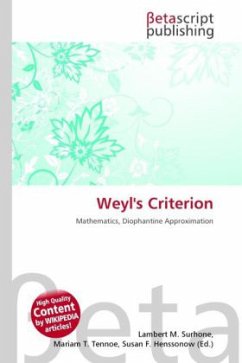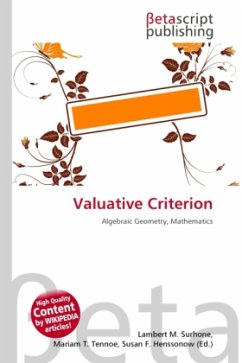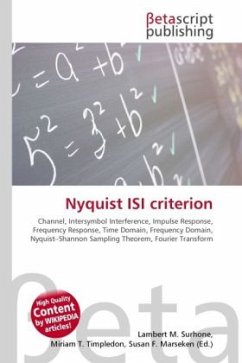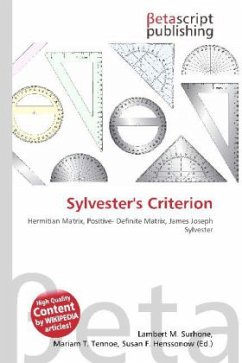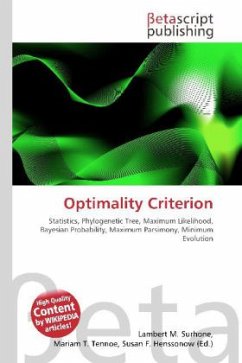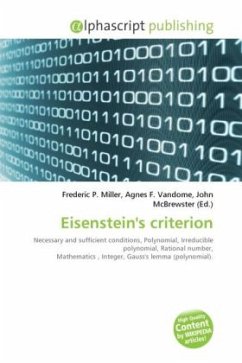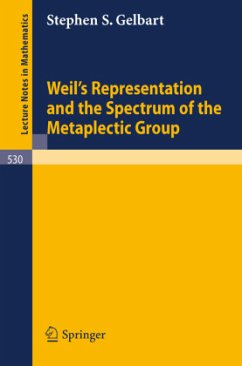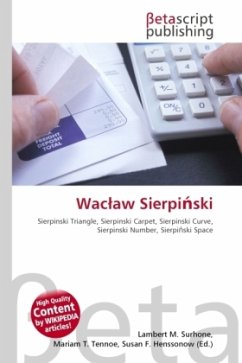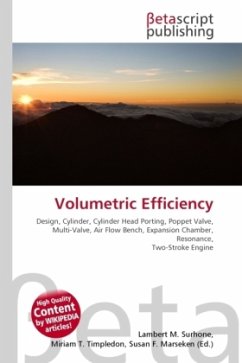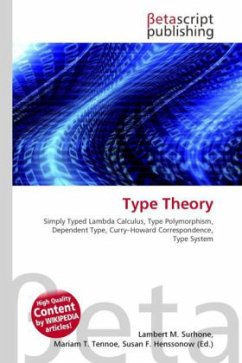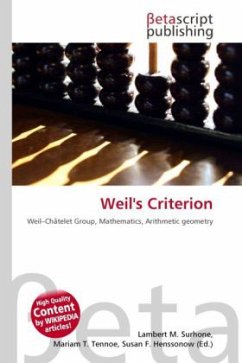
Weil's Criterion
Versandkostenfrei!
Versandfertig in 6-10 Tagen
23,99 €
inkl. MwSt.

PAYBACK Punkte
12 °P sammeln!
High Quality Content by WIKIPEDIA articles! In mathematics, Weil's criterion is a criterion of André Weil for the Generalized Riemann Hypothesis to be true. It takes the form of an equivalent statement, to the effect that a certain generalized function is positive definite. Weil's idea was formulated first in a 1952 paper. It is based on the explicit formulae of prime number theory, as they apply to Dirichlet L-functions, and other more general global L-functions. A single statement thus combines statements on the complex zeroes of all Dirichlet L-functions. Weil returned to this idea in a 19...
High Quality Content by WIKIPEDIA articles! In mathematics, Weil's criterion is a criterion of André Weil for the Generalized Riemann Hypothesis to be true. It takes the form of an equivalent statement, to the effect that a certain generalized function is positive definite. Weil's idea was formulated first in a 1952 paper. It is based on the explicit formulae of prime number theory, as they apply to Dirichlet L-functions, and other more general global L-functions. A single statement thus combines statements on the complex zeroes of all Dirichlet L-functions. Weil returned to this idea in a 1972 paper, showing how the formulation extended to a larger class of L-functions (Artin-Hecke L-functions); and to the function field case. Here the inclusion of Artin L-functions, in particular, implicates Artin's conjecture; so that the criterion involves a Generalized Riemann Hypothesis plus Artin Conjecture.



